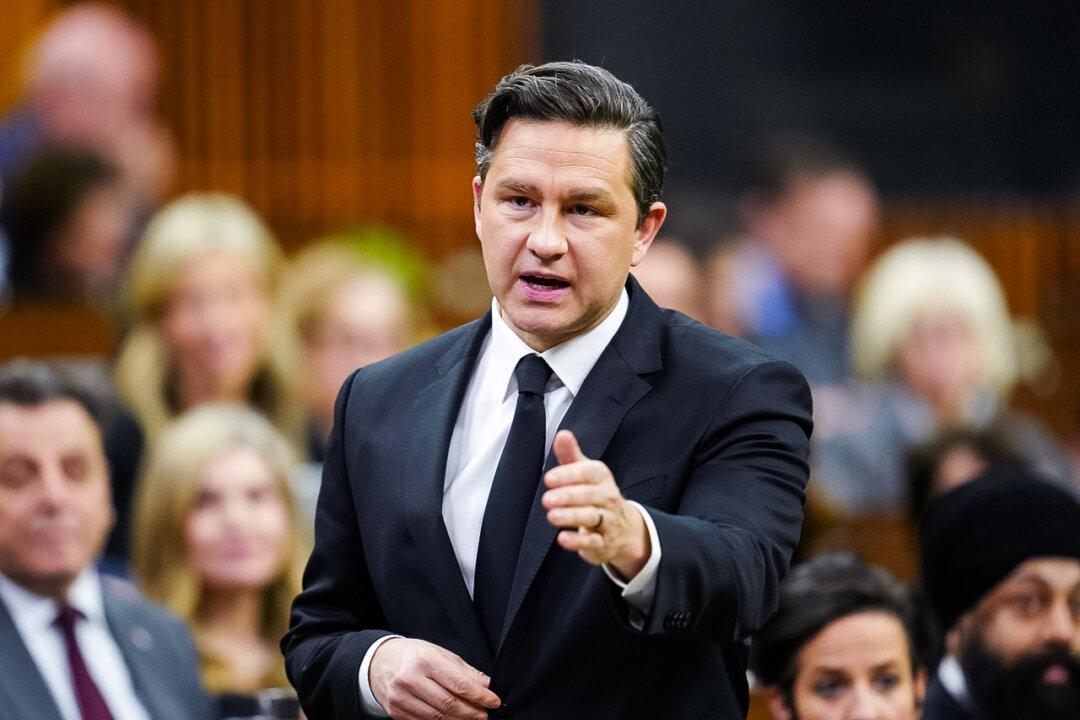Conservative Party Leader Pierre Poilievre has promised to move a motion of non-confidence in Prime Minister Justin Trudeau and call for a “carbon tax election” if the Liberal government goes ahead with its planned carbon tax increase.
The Conservative motion will refer to the 23 percent carbon tax hike, which is slated for April 1, and the subsequent increase in living costs, said Mr. Poilievre in a speech to his Tory caucus on March 20.





